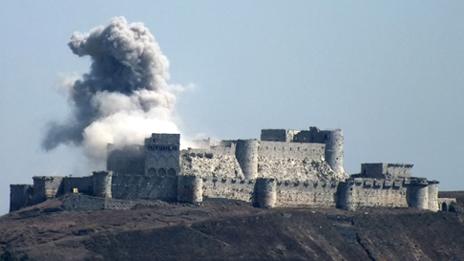'Rare' Roman mosaic found in Rastan, Syria
- Published
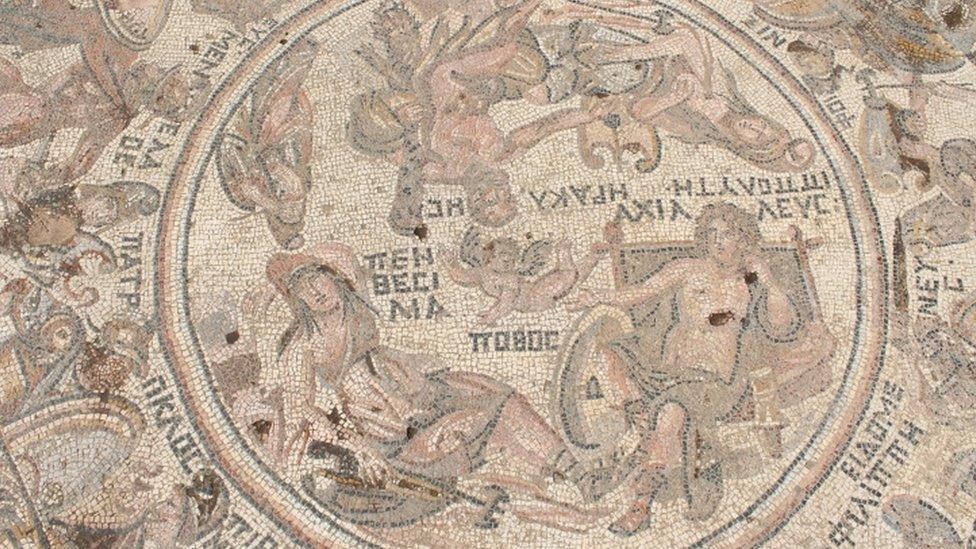
The mosaic is one of the best preserved of its kind
A 1,600-year-old virtually intact Roman-era mosaic has been discovered in central Syria.
The mosaic, measuring 20 x 6m (65.5 x 20ft), was found under a building in Rastan near Homs, which was held by rebels in the civil war until 2018.
Showing mythical scenes including the Trojan and Amazon wars, it is said to be the rarest of its kind.
Many of Syria's archaeological treasures have been damaged after more than a decade of war.
But the latest find is being described as the most important archaeological discovery since the start of the conflict in 2011.
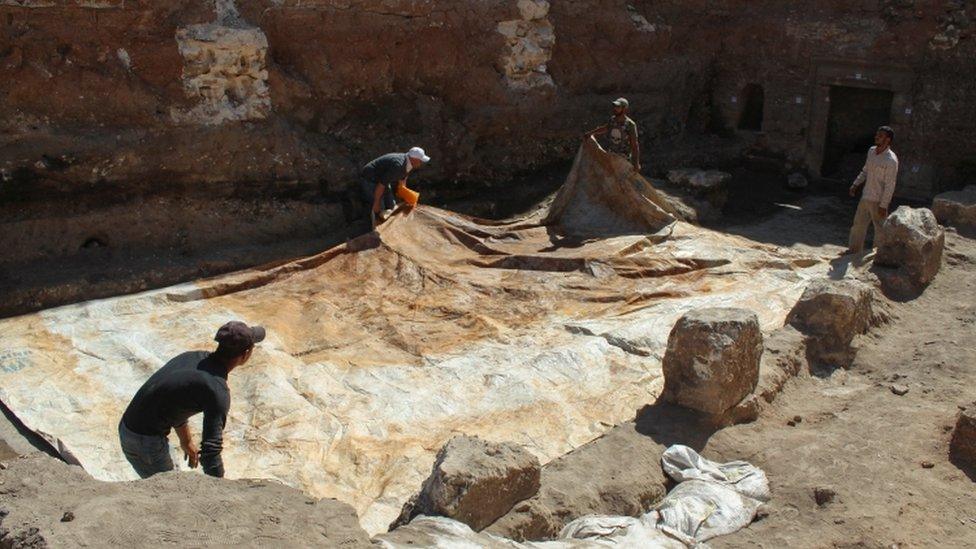
It covers an area of about 120 square metres
"What is in front of us is a discovery that is rare on a global scale," Hamman Saad, a senior official at Syria's General Directorate of Museums and Antiquities, told the Associated Press.
He added that the mosaic was rich in detail, portraying the Roman sea god Neptune and 40 of his mistresses, as well as Hercules slaying the Amazon queen Hippolyta.
Rastan was a rebel stronghold and scene of intense fighting until it was captured by Syrian government forces in 2018.
Syria is considered a treasure trove for archaeologists, being home to some of the best preserved relics of ancient civilisations including the Umayyad mosque in Damascus and the ancient city of Palmyra.
But much has been destroyed or looted in the civil war. In 2015 the Islamic State group overran Palmyra causing devastation in the city.
The chaos has also fuelled a black market in smaller items such as coins and statuettes.
Related topics
- Published2 May 2019
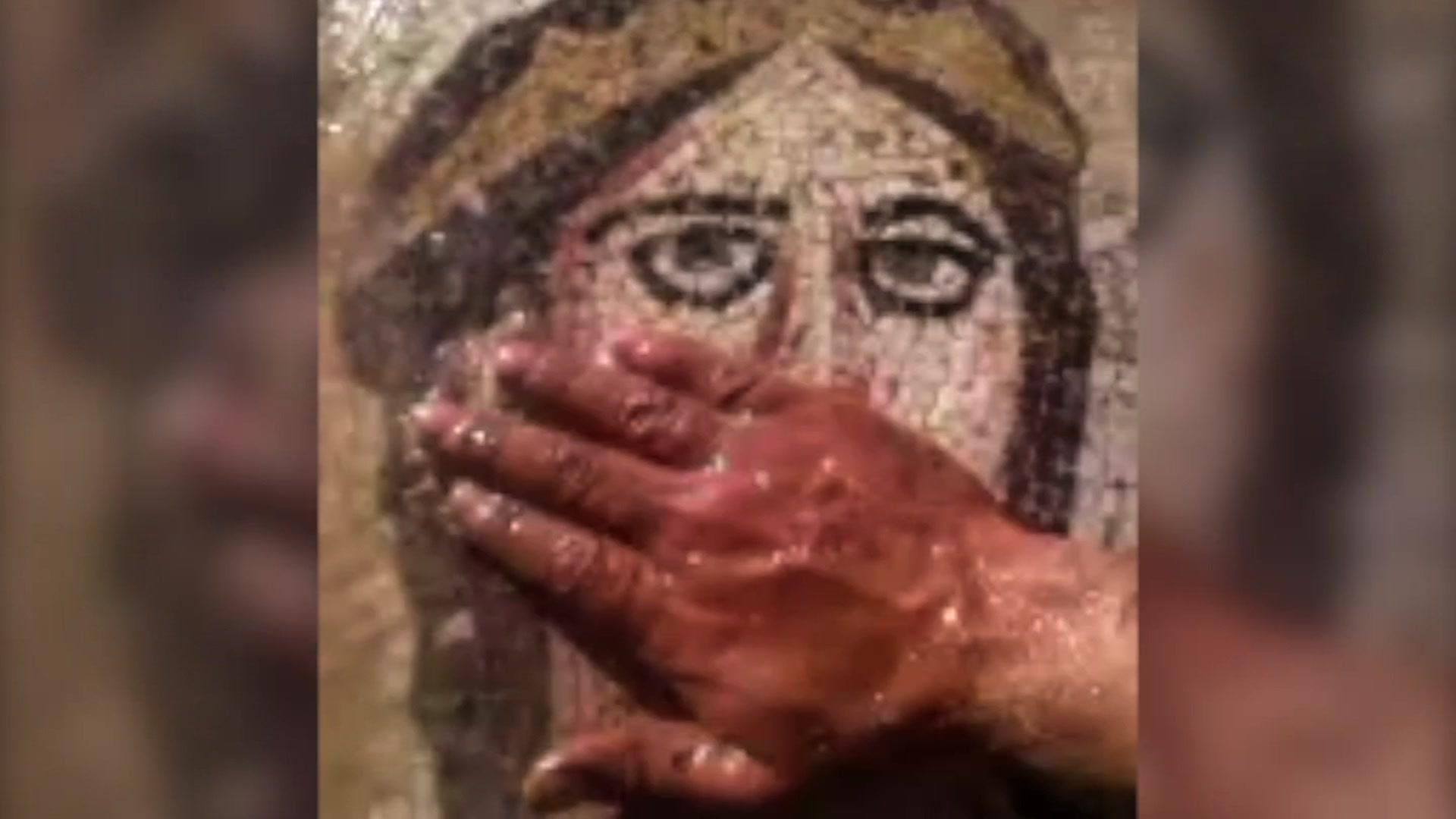
- Published21 March 2017
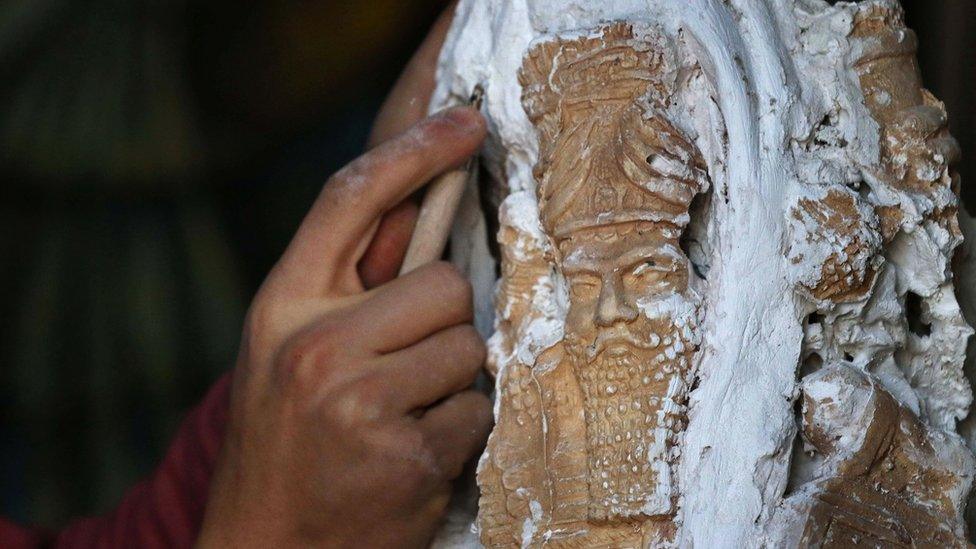
- Published17 April 2015
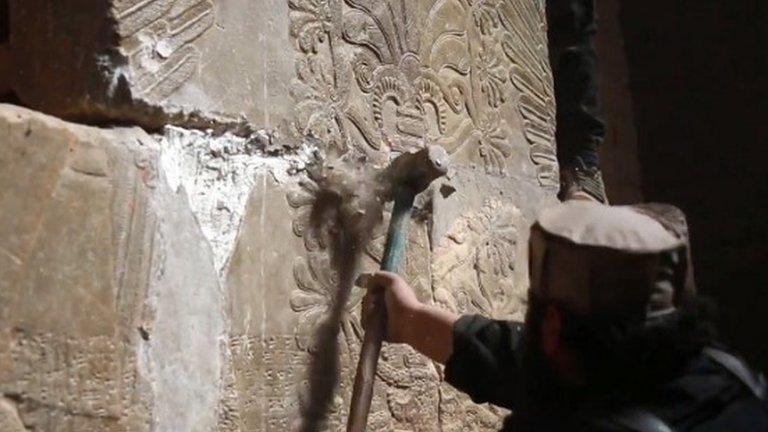
- Published6 March 2015
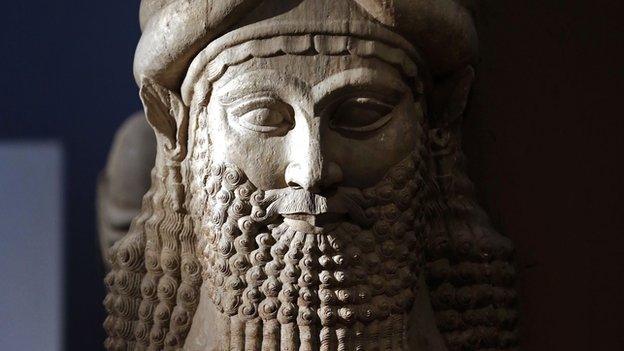
- Published10 July 2014
